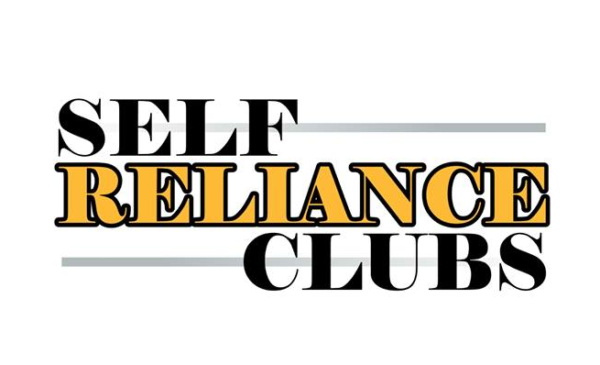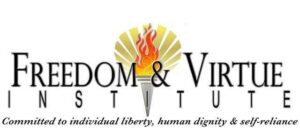At the Freedom and Virtue Institute (FVI), one of our core values is self-reliance. The term is featured in the name of our flagship program: self-reliance clubs. Does this mean that we advocate “rugged individualism,” where everyone is on his own and only the fittest survive? Obviously not. If we did, then the idea of a “self-reliance club” would itself be an oxymoron.
What, then, do we mean by self-reliance? Consider the description that appears on our website. It may seem odd that the beginning of FVI’s statement on self-reliance is a claim about reliance: “Our most fundamental reliance is on God”. This claim is critical because it recognizes at the outset that absolute human self-reliance is impossible. “God shows the capacities of reason and choice to perfection. We rely on our capacities because we were made in his image”. Even the rugged individualist is compelled to use what Another has provided to create the illusion of “providing for himself.”

Nor does self-reliance insinuate complete independence from other human persons. For one, we are called to employ the gifts that we’ve been given in a useful fashion. “We use the gifts [God] gave us to recreate our environment and produce positive outcomes for ourselves, our families, and our community”. This employment comes about through relationships—relationships that are familial, fraternal, social, economic, and political. Each of these spheres involves interpersonal relations that are in character somewhat different from those in the other spheres, but they are all important and contribute to forming the complex web of relations that comprise a healthy society. Thus FVI, far from advocating an isolating individualism, instead insists that “we rely on others and cooperate because others also are made in the image of God—we are called to communion!”
Freedom and voluntary association with each other are not only compatible; they are necessary companions. Alexis de Tocqueville, in his famous reflection on American democracy, wrote that “Sentiments and ideas renew themselves, the heart is enlarged, and the human mind is developed only by the reciprocal action of men upon one another.” Where people enjoyed freedom and independence, it would therefore be necessary to form associations that could accomplish this civilizing aim. Tocqueville concluded his treatment of associations this way: “In order that men remain civilized or become so, the art of associating must be developed and perfected among them in the same ratio as equality of conditions increases.”
It may seem that our view at this point is tilting away from self-reliance altogether. Here it helps to keep in mind what is being avoided. FVI, the website statement concludes, “encourages replacing the attitudes of entitlement and dependency by teaching individuals that they must become accountable for their own lives and well-being.” Although we are to some degree dependent on others, we should not enter into a relationship of dependency. That kind of relation is appropriate for a parent-infant relationship, but in able adults it is only found in the dysfunctional dialectics of master-slave or patron-client.

All the pieces are now in place for a balanced understanding of self-reliance. It is not the delusional belief that one can thrive without the assistance of others, nor the willingness to accept the sustaining support of others as a replacement for personal responsibility. It is not the refusal to relate to others in relations of mutual charity and benevolence, nor the exploitation of others as instruments of material or psychological comfort. It is expressed in neither independence nor dependence but instead in interdependence, which is the mutually beneficial relationship of equals. In this way, self-reliance is a form of charity. When we strive to be self-reliant, we seek to minimize the burden placed on others and maximize the burden placed on ourselves. We look for ways to contribute rather than to extract. We strive to build up the capacities of others rather than take advantage of their weaknesses. Where these attitudes are dominant, there is a flourishing social group—be that a family, a business enterprise, or a society.


